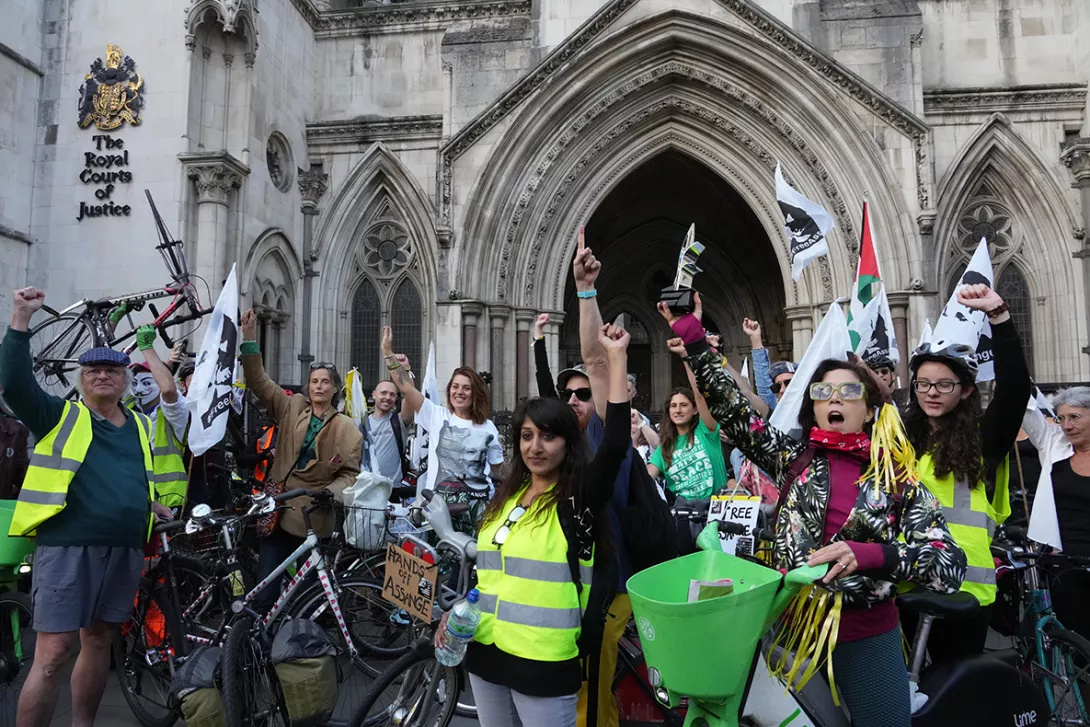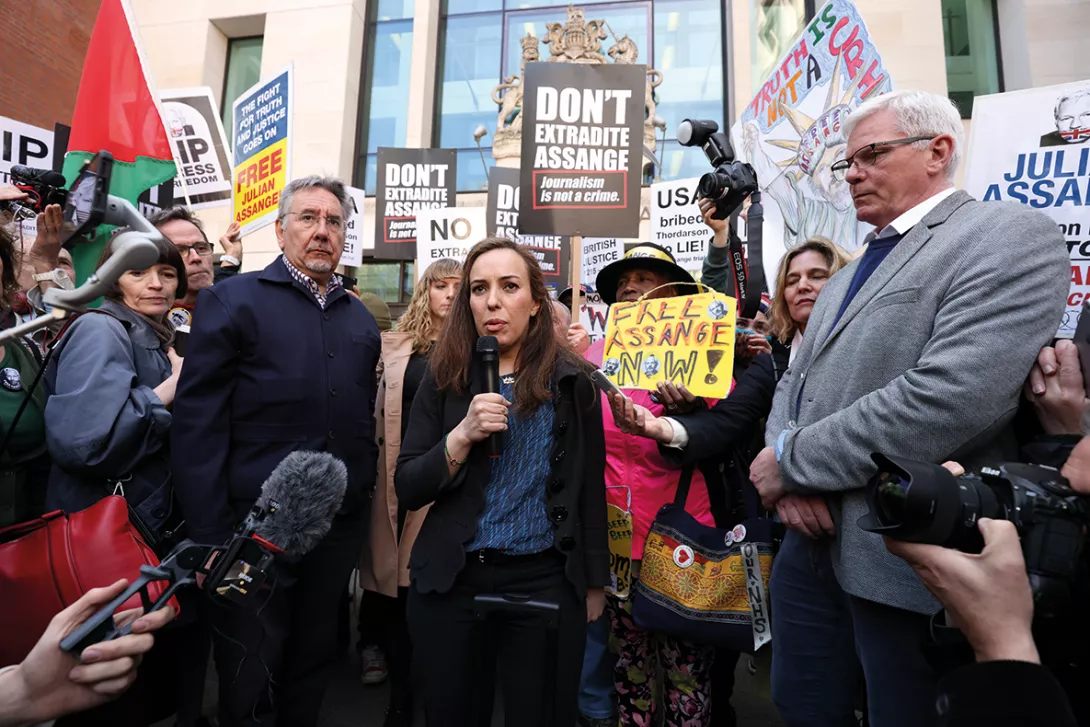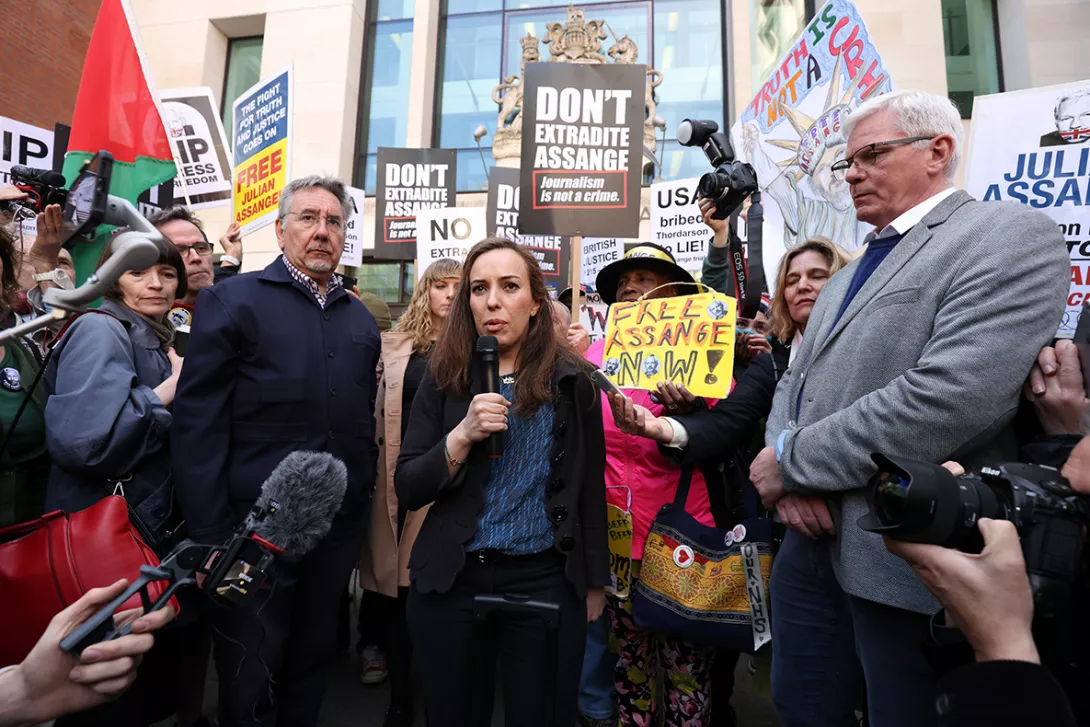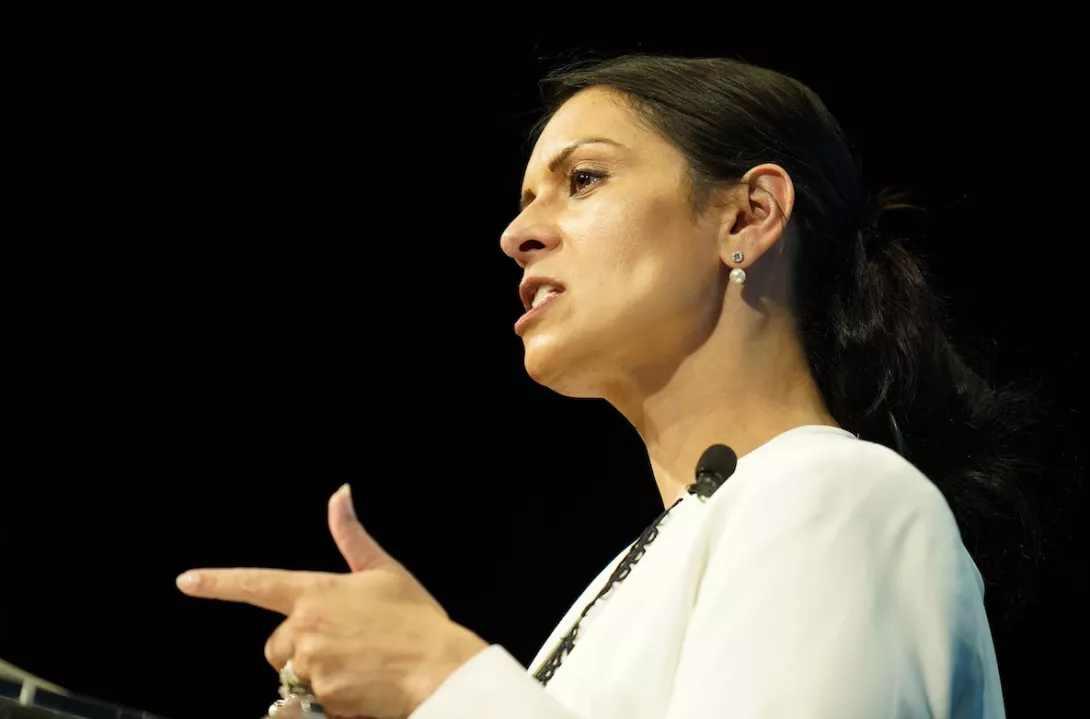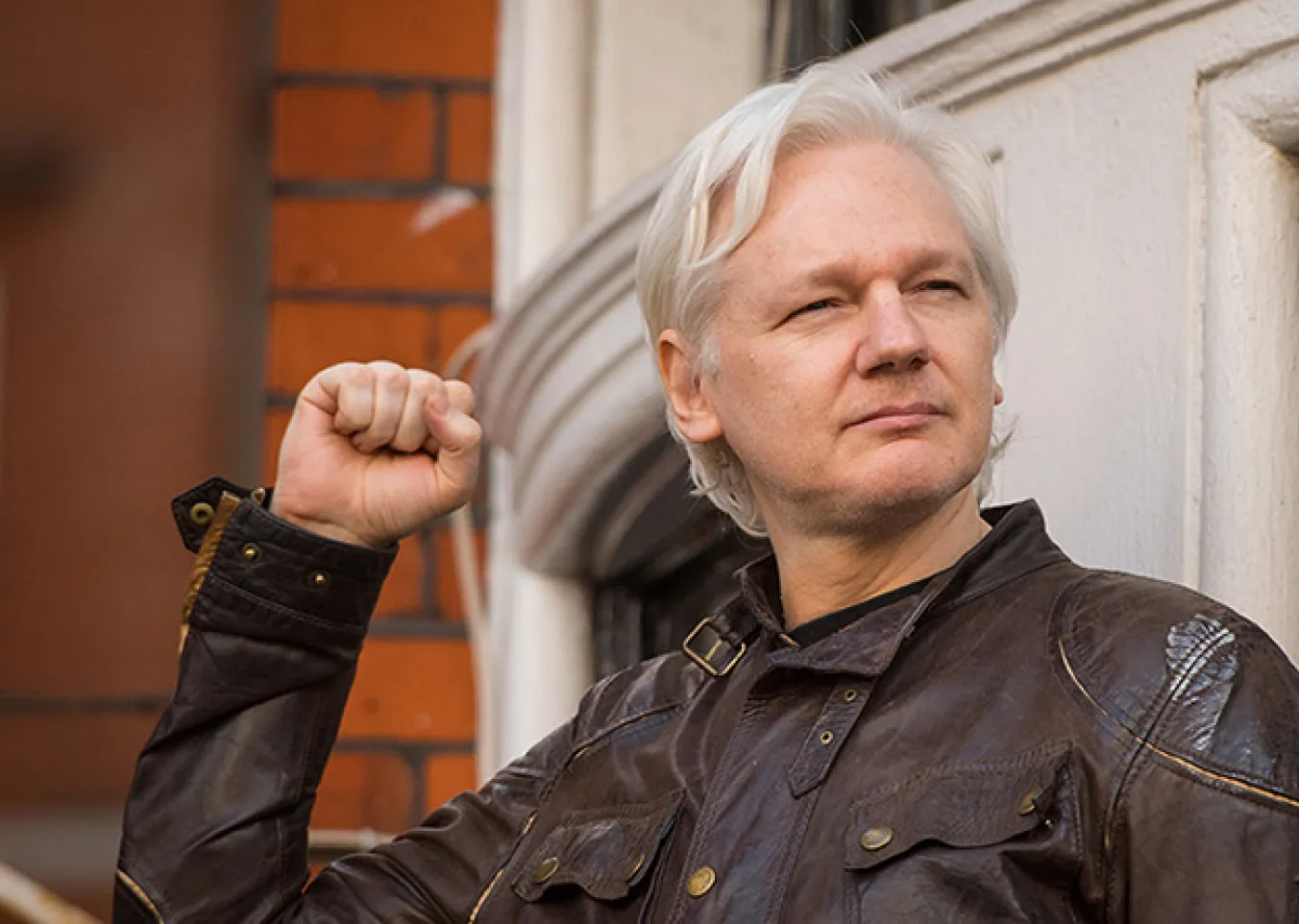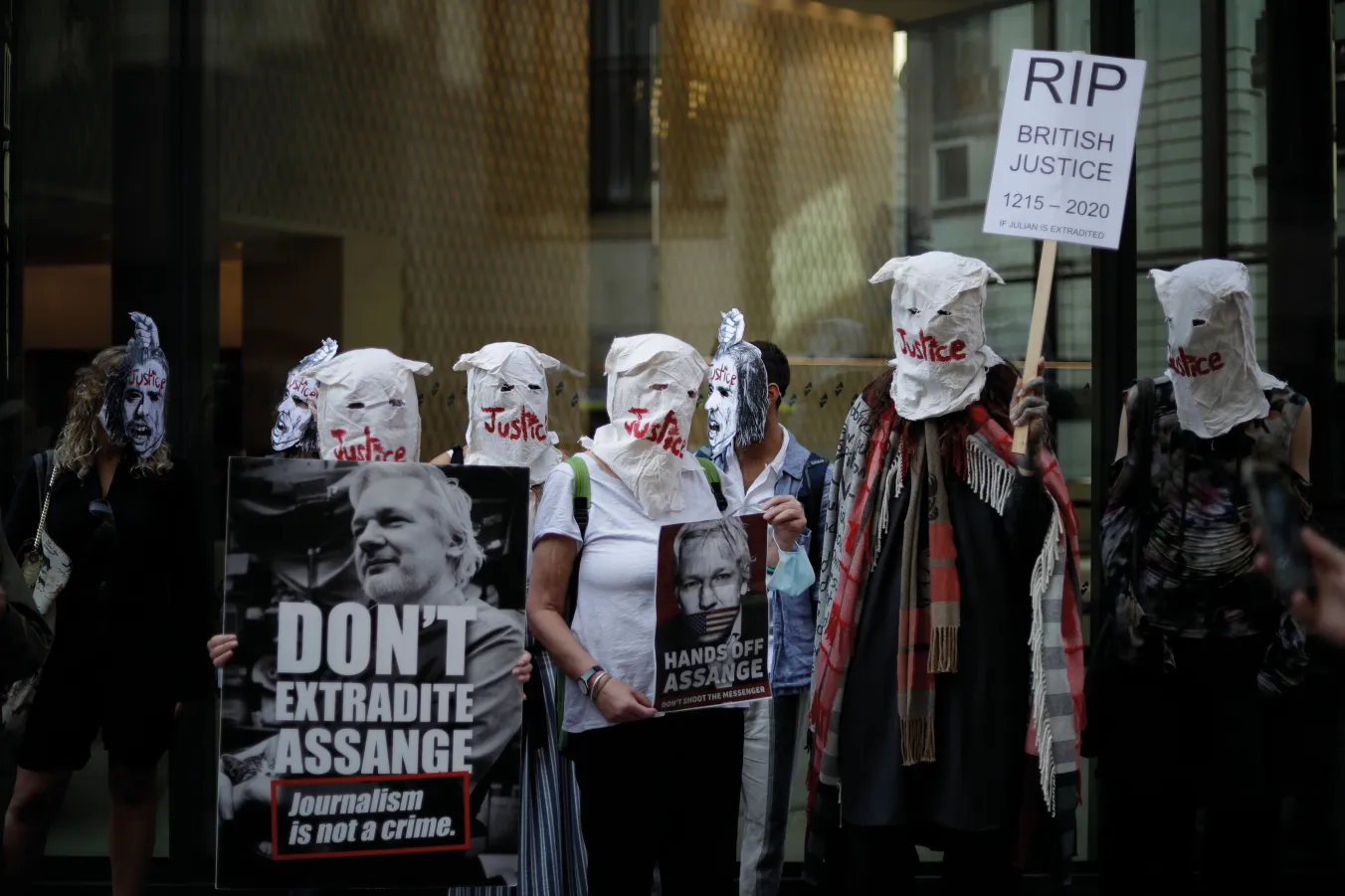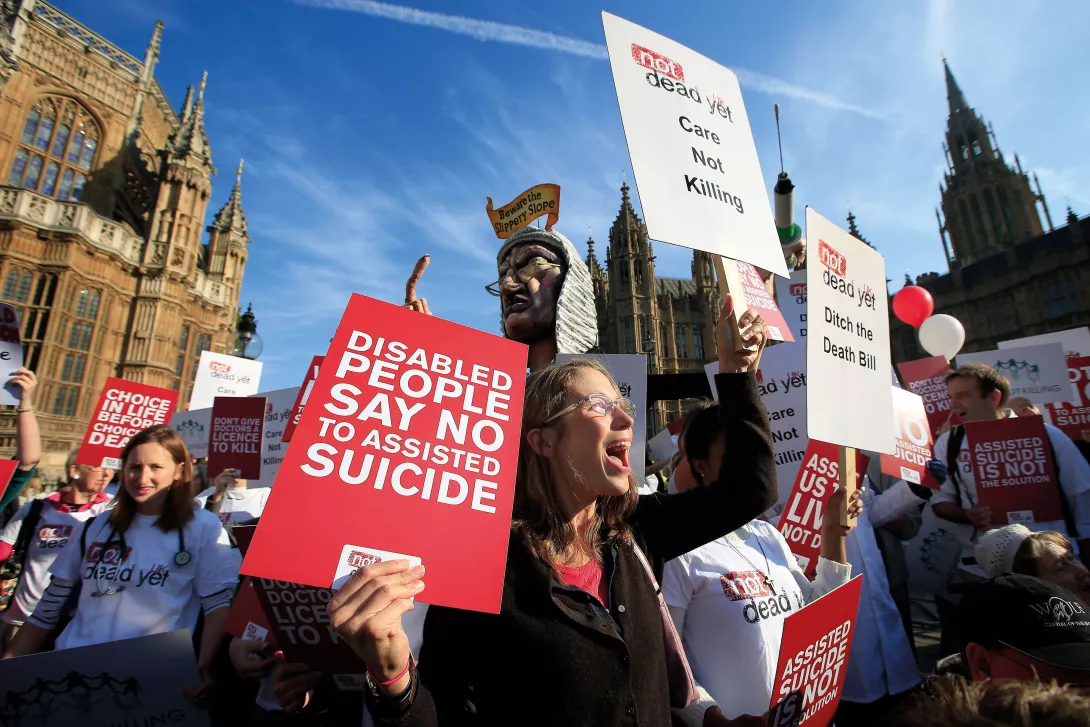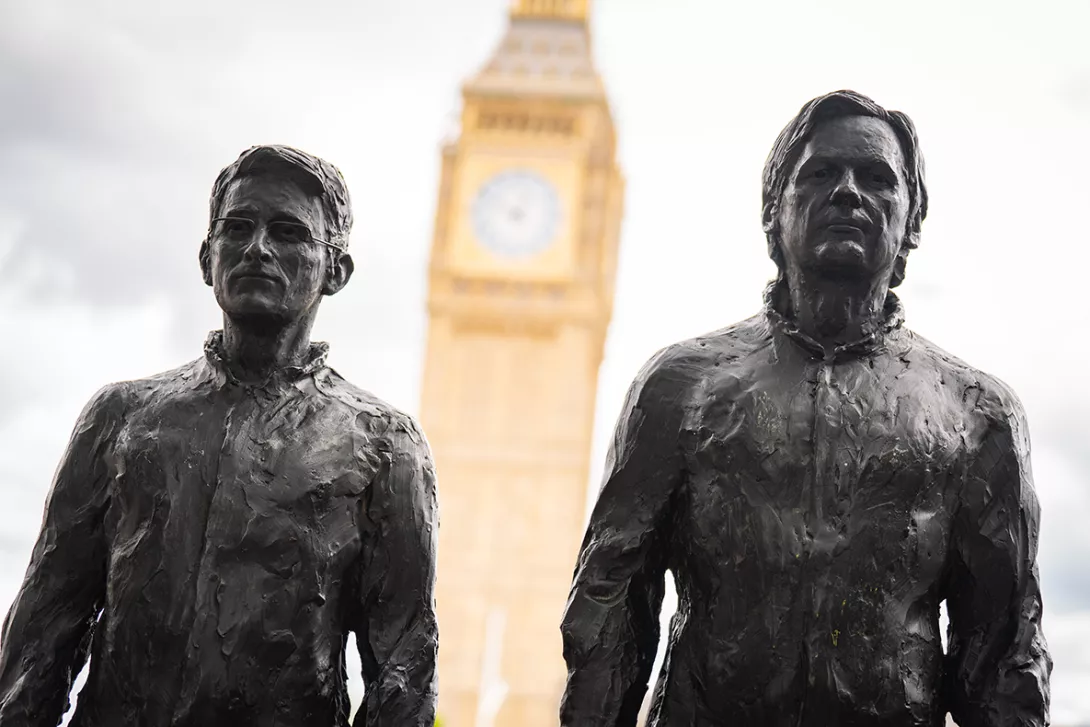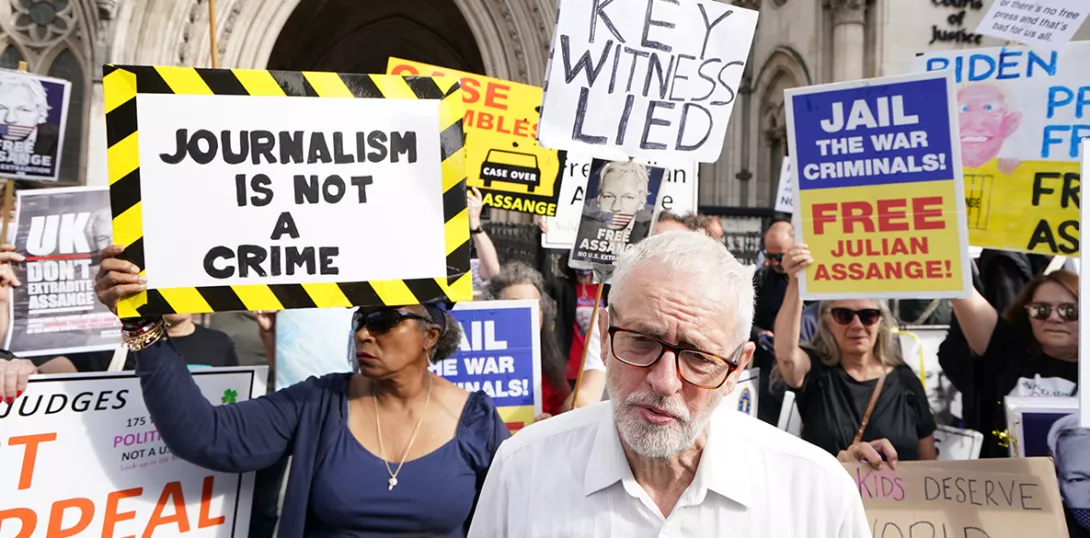
UNITED STATES lawyers will launch an appeal at the High Court today in an attempt to restart Julian Assange’s extradition to America.
That attempt was frustrated at the start of this year when Westminster Magistrates Court ruled that Assange would be at risk of suicide if he were incarcerated in the US prison system, which the judge said was “oppressive.”
The most important part of the US appeal is the “assurance” that the US is offering that Julian Assange will not undergo the most draconian incarceration that the US prison system has to offer.
But explosive findings about the CIA by an investigative journalism team at Yahoo News have exposed just how hollow are those assurances.
Yahoo News interviewed over 30 serving and former CIA officers and revealed that the agency had discussed the possibility of kidnapping or even assassinating Julian Assange while he was seeking asylum in the Ecuadorian embassy in London.
The plans were discussed at the highest level in the CIA and even got as far as discussions with British officials, whose only objections were that if firearms were to be used or cars rammed on British streets it should be by British spooks not US spooks.
How does this frightening tale of CIA-planned illegality impact this week’s appeal hearing?
Well, amazingly, it is the CIA which has the say in how prisoners held under the Espionage Act, the legislation which is for the first time ever being used against a journalist in the Assange case, are treated in the US prison system.
So the very same agency which planned to either kidnap or kill Assange will be deciding whether he should be held in life-threatening conditions in US prisons.
And Assange can expect no protection from the so-called “assurances” that are being offered to the High Court this week because in the very same document that these assurances are advanced it is also stated that they can be withdrawn at any time in the future if the US authorities see fit.
So these “assurances” can vanish at any moment and the decision over Assange’s conditions will be taken by the very people who had no qualms about formulating plans to kidnap or kill him.
Nor are these the only blows that have been struck to the prosecution argument since the magistrates’ court decided that Assange should not be extradited.
The prosecution’s key witness, hacker, fraudster and sexual offender Siggi Thornardson, on whom the FBI relied as an informant, has admitted to Icelandic journalists that he lied in his evidence to the original hearing.
And this all comes on top of the revelations that the CIA spied on Assange, his family, and his lawyers by suborning the Spanish security firm that had actually been employed to protect him when he was in the Ecuadorian embassy.
Add all this together and we have the elements of a plot which would even tax the patience of a dedicated Le Carre reader.
Except this is all real. A real plot to discredit and convict a journalist whose real crime is to have revealed truths that the US government wanted to keep hidden.
And all the while the US has had a willing accomplice in the British political establishment.
Only a few months ago former Tory minister Alan Duncan was bragging in his diaries about how central he had been to the operation that led to Julian Assange’s arrest and imprisonment in Belmarsh.
So did he know of the CIA kidnap plot at the time? If he knew, what was his view? If he didn’t know, why not?
This is only the start of the questions that British ministers have to answer. Has Priti Patel, the Home Secretary who has agreed the Assange extradition process, been briefed about the CIA plot? Does she still regard this as a safe and credible process? Why does she not call a halt to this charade?
